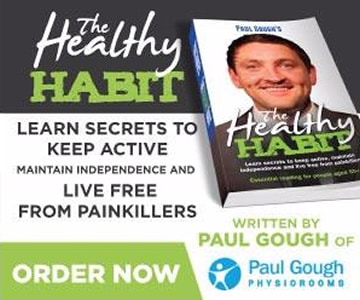Let’s talk about one of the most common causes of neck and shoulder pain – sleeping!
Not just sleeping, but the way we sleep (and even what we do before we sleep).
Have you ever woken up in the morning with a stiff and slightly painful neck? Often it’s just an annoying ache that eases off shortly after you’ve got out of bed, but after days of waking up feeling like this, it can become a lot more painful.
It’s something that we don’t usually think about, but one of the most important things to consider is the effect that sleeping can have upon our neck and shoulders.

Let me explain:
An increase in neck or shoulder pain is a common problem that many people experience as a direct result of resting for 8 hours or more in an awkward position, either on an old mattress which needs replacing, or on the wrong types of pillows.
Why?
Because having your neck twisted or bent in a funny position for long periods of time isn’t good for the body, and after a while your body becomes so used to being in a certain position when you go to sleep (the position you’ve been sleeping in for most of your life!) – night after night, so no wonder why the neck becomes painful.
But it’s not only down to the way we sleep…
Another thing I see a lot that people do before they turn in for the evening is that they watch TV or read. But the thing is while doing these things, the head is rarely supported properly, causing a lot of strain on the muscles – leading to aches and pains in your neck…
True story – this same thing happened to a patient of ours this week.
He arrived at my clinic telling us that he’s hurt his neck because of driving all weekend, (that’s what he thought anyway), after we took a closer look, one or two questions led us to the conclusion that makes the most sense, that the root cause of his neck pain was because of looking up at a tv screen on the wall before sleeping, and then sleeping with two pillows in a twisted position.
So the solution to waking up refreshed and pain-free?
Well first, if you like to read or watch your favourite TV show before drifting off, take a look at how you’re sitting. Do you prop yourself up with several pillows behind you with your neck either bent forwards, or straining to look up?
If yes, place yourself into a neutral position tonight instead, where your arms are supported and your neck is kept straight in-line with your back. What helps my patients is when they think of it like this – it’s as if you have a piece of string attached to the top of your head keeping you upright, after a while of getting used to this, the pressure on your neck should ease off.
Another thing for when you get your shut-eye, think about the way you sleep. Do you sleep on your front? Your back? Or even your side?
My tip is to avoid sleeping on your stomach as this forces your head to be twisted into an unnatural position. Instead sleep on your back, this way your body is kept nicely in line and your spin is supported.
One more thing, you might think sleeping on your back is all well and good but it won’t change a thing if your pillows aren’t helping your neck.
Sleeping with more than one pillow behind your head can place your neck into an awkward position. When sleeping on your back it’s important to find a pillow that doesn’t tilt your head forwards or backwards.
The takeaway? It’s important to sleep in a position you find comfortable but one that also supports your body at the same time. Experimenting with different sleeping positions won’t do you any harm if your neck and back aren’t twisted.
I used to sleep with two pillows all the time, on my side with my legs twisted all over the place! But since changing the way I rest I’m much better to get a good nights sleep if my neck rests own in it’s normal position, and I no longer wake up feeling like I’ve done acrobatics in my sleep!
Why don’t you give it a try? And let me know how you get on!
If you need more tips to ease neck and shoulder pain, you can download my free report here instantly: www.paulgoughphysio.com/neck-shoulder-pain … which shows you how to ease pain naturally, without needing painkillers.
Or go here:


